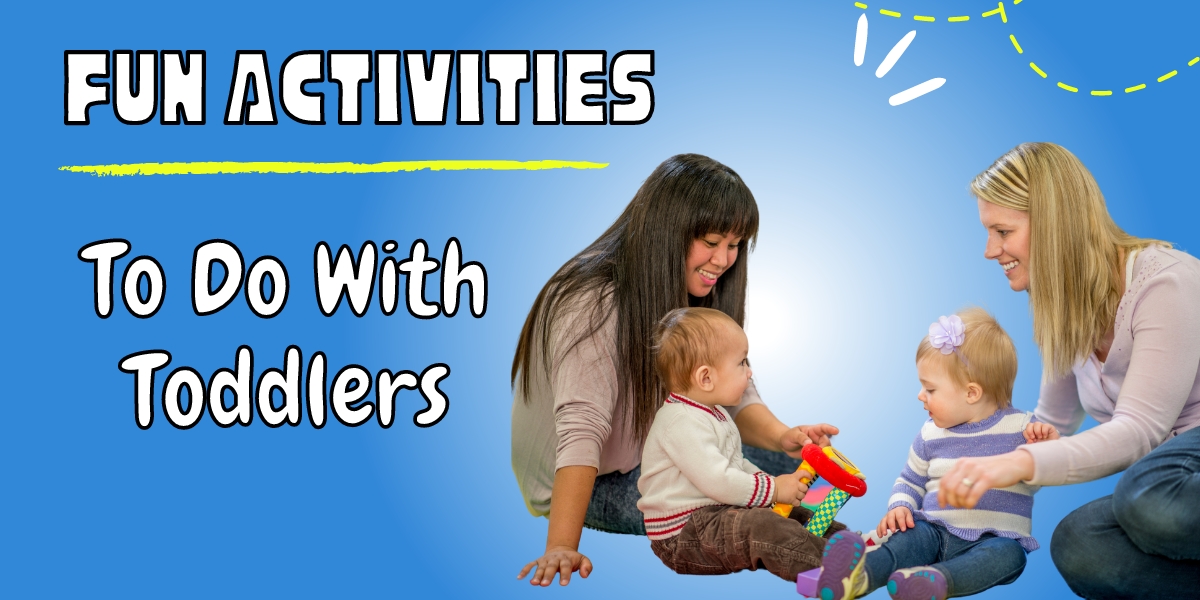Engaging toddlers in fun activities is more than just a way to keep them entertained; it’s crucial for their development. These activities can aid in their cognitive, physical, and emotional growth.
In this blog post, we’ll explore 10 exciting activities you can enjoy with your little ones, each designed to be both fun and educational.
10 Activities To Do With Toddlers
1. Outdoor Scavenger Hunt
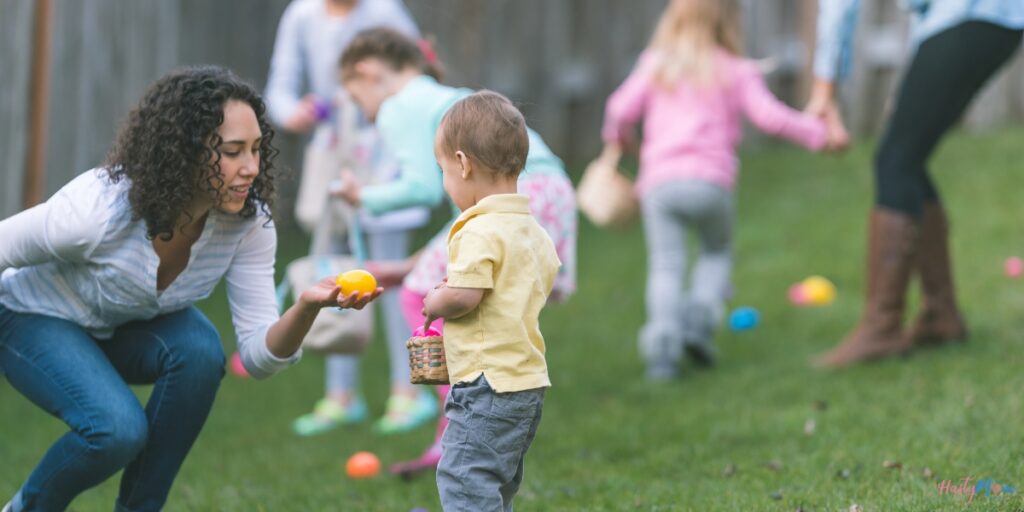
Description:
Take your toddler on a mini-adventure right in your backyard or local park. Create a simple scavenger hunt list of items like leaves, rocks, flowers, or even specific colors.
Importance:
Scavenger hunts stimulate your child’s observational skills and teach them about nature and the environment around them.
Tip:
Use pictures instead of words for the list to help non-readers participate fully.
2. Finger Painting
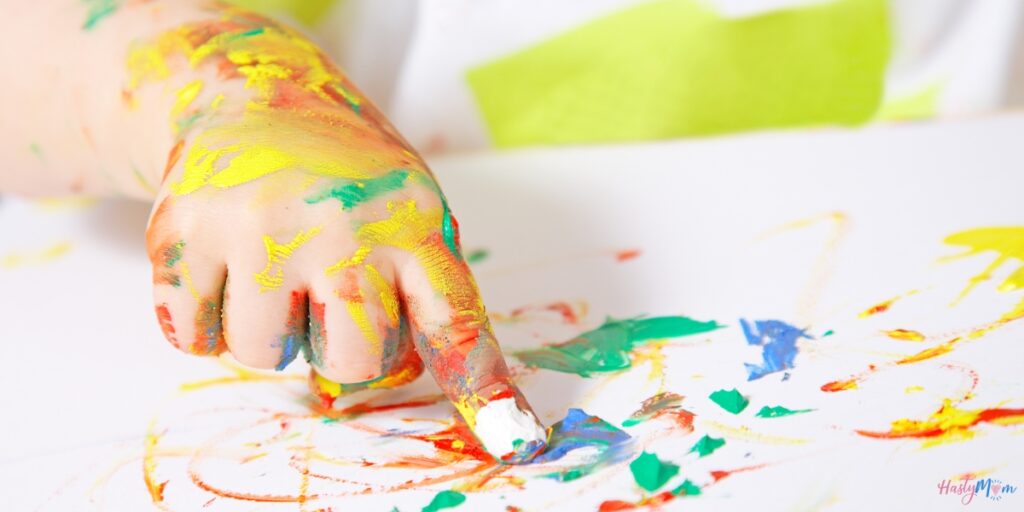
Description:
Set up a mess-friendly area with washable paints and paper. Let your toddler explore their artistic side through finger painting.
Importance:
This activity fosters creativity and improves fine motor skills as they learn to control their hands and fingers.
Tip:
Cover the area with old newspapers or a plastic sheet to make cleanup easier.
3. Building Blocks
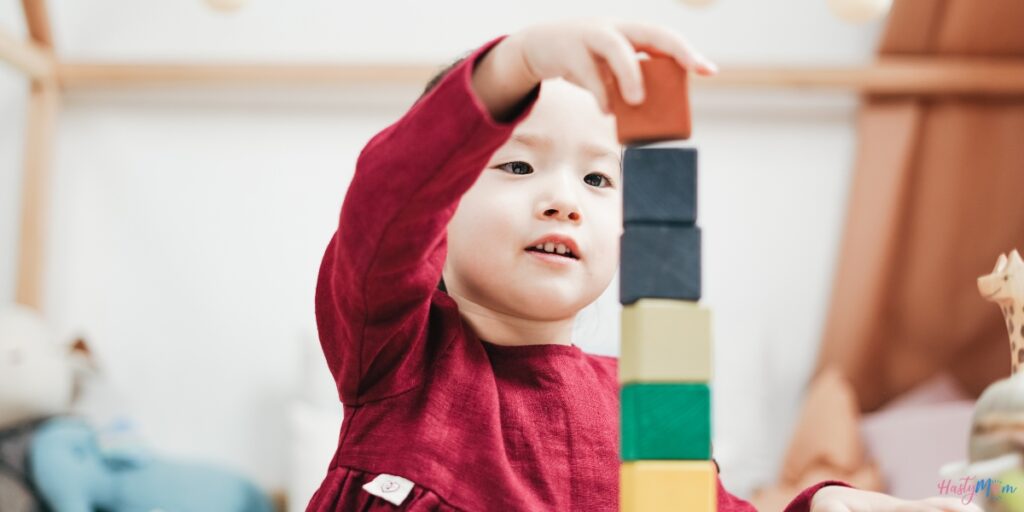
Description:
Stacking and constructing with blocks can be a timeless activity. Use different shapes and sizes to add variety.
Importance:
Building blocks enhance spatial awareness and problem-solving skills while also encouraging imaginative play.
Tip:
Guide your toddler in building simple structures to boost their confidence.
4. Storytelling Sessions
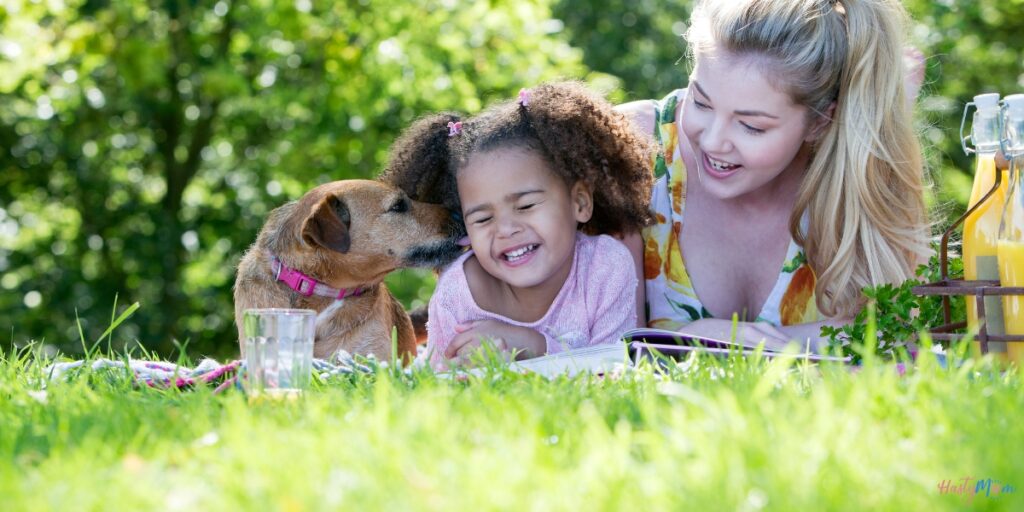
Description:
Read a variety of books aloud to your toddler or create your own stories using toys and puppets.
Importance:
Storytelling improves language skills, expands vocabulary, and stimulates imagination.
Tip:
Involve your toddler by asking questions about the story or letting them guess what happens next.
5. Music and Dance Party
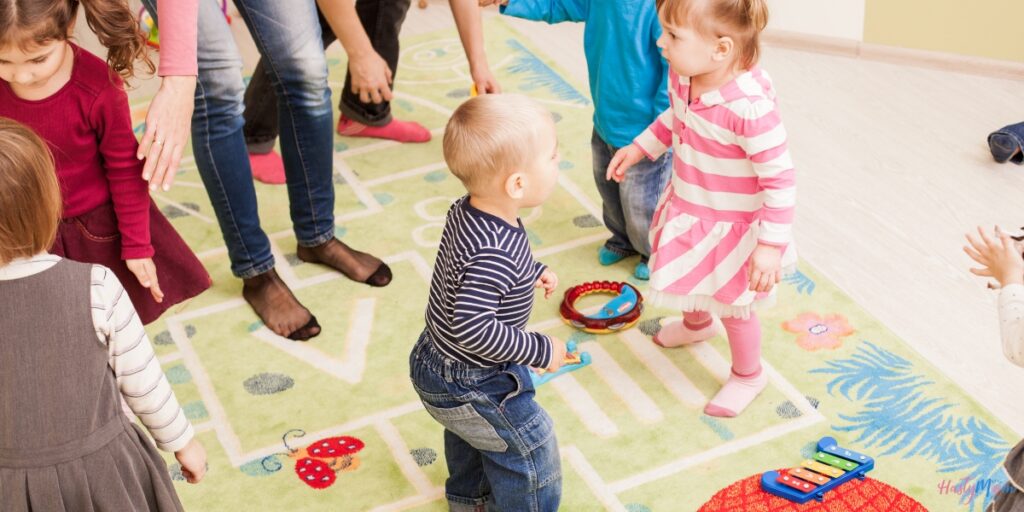
Description:
Play some lively music and dance along with your toddler. Use simple instruments like tambourines or maracas for added fun.
Importance:
Music and movement activities develop gross motor skills and rhythm while also promoting emotional expression.
Tip:
Create a playlist with different tempos and genres to expose your child to various musical styles.
6. Gardening Together
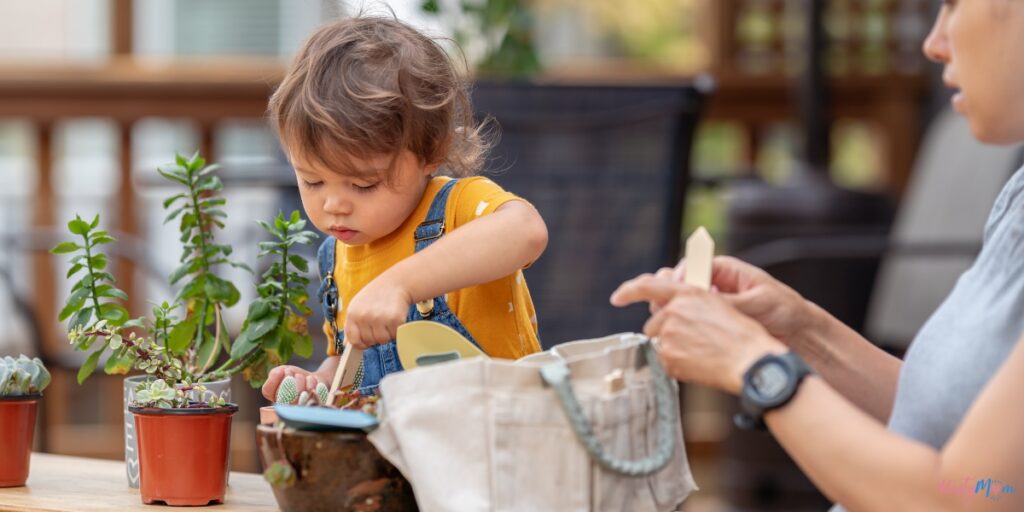
Description:
Plant flowers, vegetables, or herbs in a garden or a small pot. Let your toddler help with watering and caring for the plants.
Importance:
Gardening teaches responsibility and patience while offering sensory experiences with different textures and scents.
Tip:
Choose fast-growing plants to maintain your toddler’s interest and sense of accomplishment.
7. Simple Science Experiments
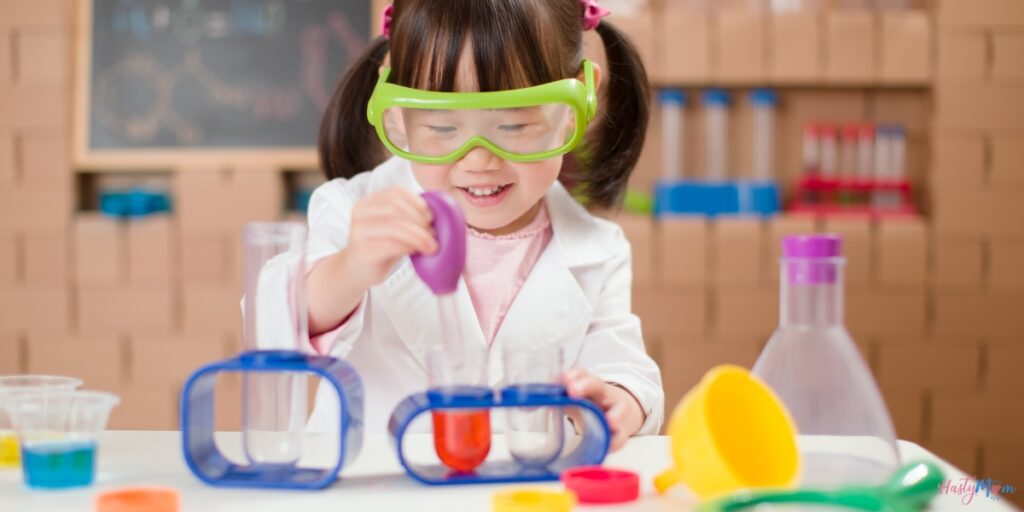
Description:
Conduct easy science experiments, like mixing baking soda and vinegar to create a fizzing reaction.
Importance:
These activities introduce basic scientific concepts and encourage curiosity and exploration.
Tip:
Always supervise and explain the process to make it an educational experience.
8. Puzzles
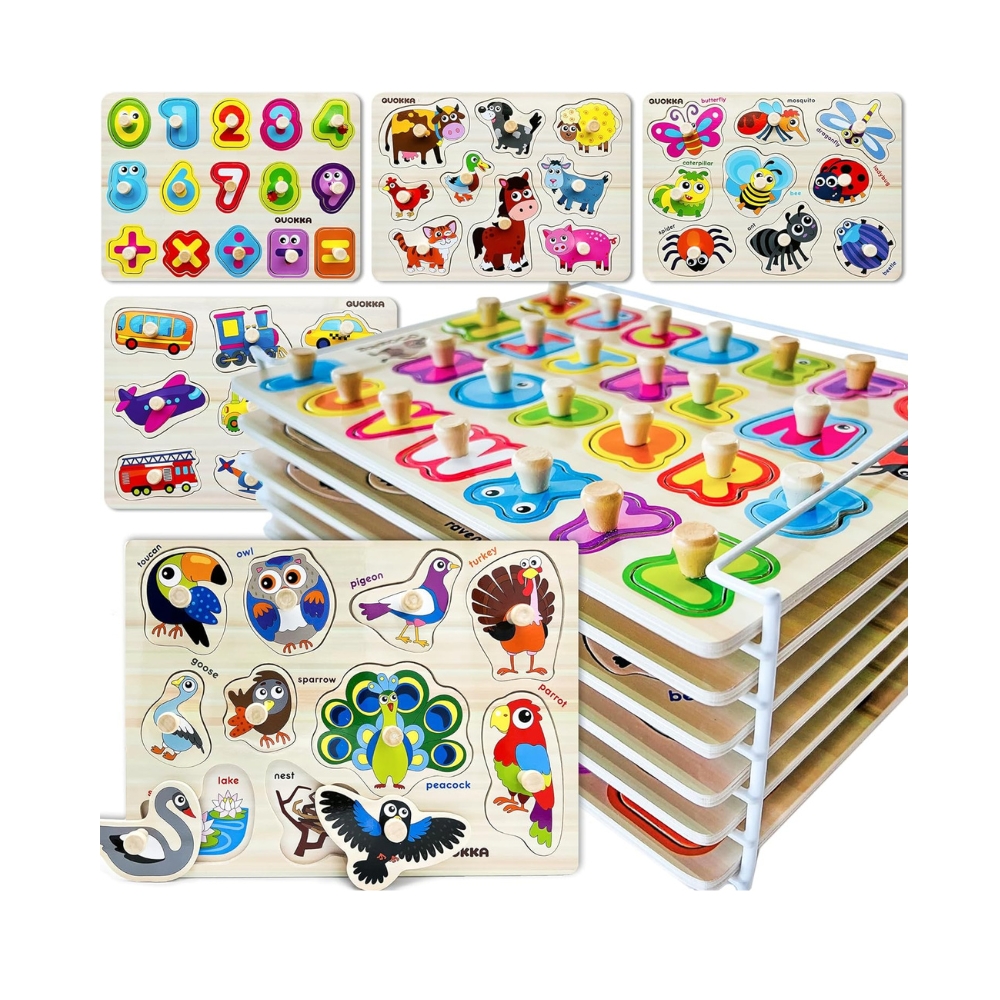
Description:
Provide age-appropriate puzzles with large pieces that your toddler can manipulate easily.
Importance:
Puzzles boost cognitive development by enhancing problem-solving abilities and hand-eye coordination.
Tip:
Start with simple puzzles and gradually increase the difficulty level as your toddler becomes more proficient.
9. Pretend Play
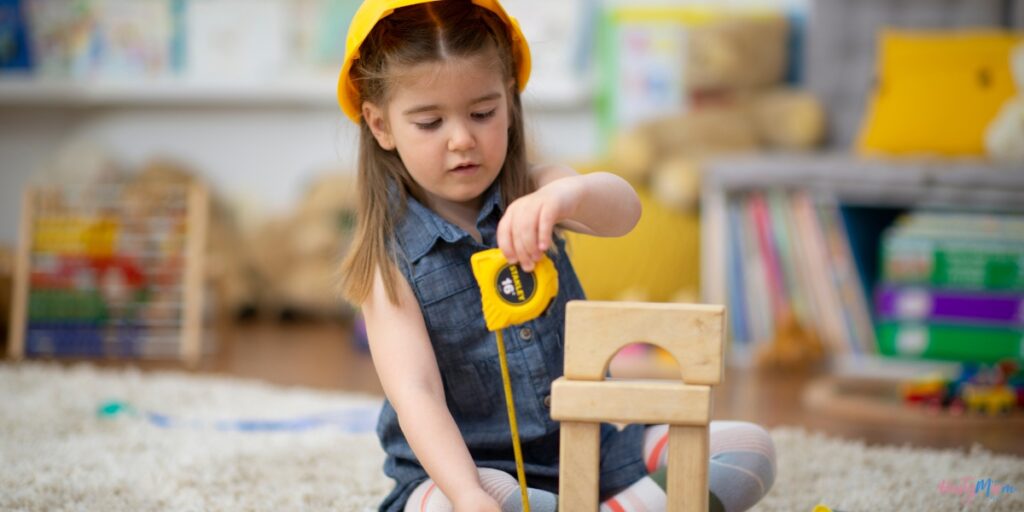
Description:
Encourage your toddler to engage in pretend play using costumes, props, and toys. They can be anything from a chef to a superhero.
Importance:
Pretend play nurtures creativity, social skills, and emotional understanding as your toddler navigates different roles and scenarios. By engaging in imaginative activities, children learn to express themselves, solve problems, and understand the perspectives of others. This type of play also fosters language development and helps build confidence, preparing them for real-life interactions and challenges.
Tip:
Join in the fun and model different characters to add depth to their play experience.
10. Water Play
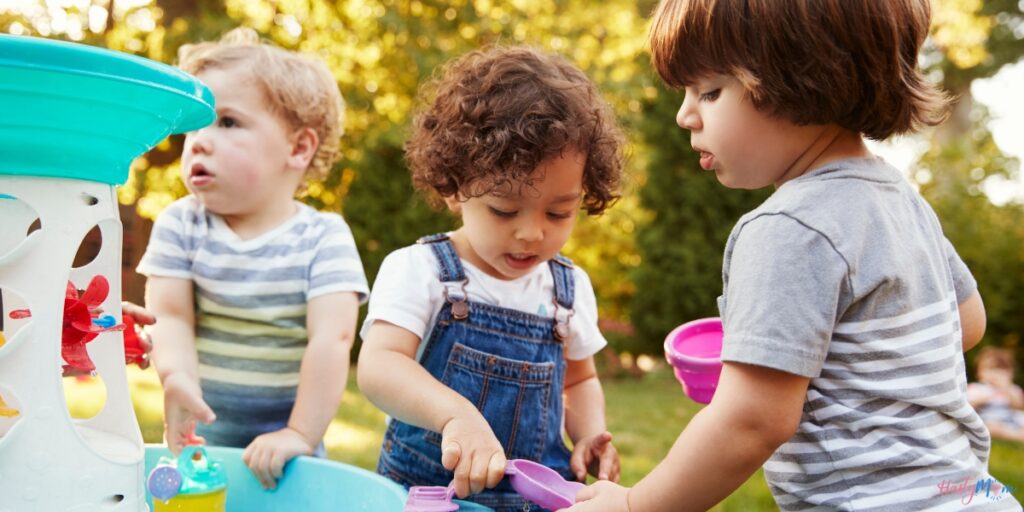
Description:
On a warm day, fill a small pool or basin with water and let your toddler splash around. Provide cups, spoons, and toys for added enjoyment.
Importance:
Water play offers sensory stimulation and helps develop motor skills through activities such as pouring, stirring, and splashing. It also encourages creativity and imagination as children explore different textures and temperatures. Additionally, water play can foster social interaction and cooperation when children play together, enhancing their communication skills and teamwork abilities.
Tip:
Always supervise water play closely to ensure safety.
Tips for Engaging Toddlers
- Keep it Short: Toddlers have short attention spans, so keep activities brief and varied. Plan for a mix of activities that involve different senses and movements to keep them interested.
- Be Patient: Allow your child to explore at their own pace without rushing them. It’s important to give them the time to learn and discover things on their own, which helps in building their confidence and independence.
- Create a Routine: Consistent activity times can help your toddler know what to expect and look forward to. Establishing a daily schedule with regular playtimes can provide a sense of stability and security.
- Praise and Encourage: Positive reinforcement will make activities more enjoyable and boost your toddler’s confidence. Celebrate their achievements, no matter how small, and offer words of encouragement to motivate them to try new things.
FAQ
Q: How often should I engage my toddler in these activities?
A: It’s beneficial to incorporate a variety of activities into your toddler’s daily routine. Aim for short, frequent sessions to keep them engaged and interested.
Q: What if my toddler loses interest quickly?
A: Toddlers have naturally short attention spans. If your child loses interest, try switching to another activity or incorporating different elements to make the activity more engaging for them.
Q: Are these activities safe for all toddlers?
A: While the activities are generally safe, always supervise your toddler closely, especially during activities that involve small parts, water, or potential mess. Ensure that all materials and toys are age-appropriate.
Q: Can these activities be adapted for older children?
A: Yes, many of these activities can be scaled up to suit older children by increasing complexity or introducing new challenges. Adjusting the difficulty level can help maintain their interest and development.
Q: How can I measure my toddler’s progress?
A: Progress can be seen through increased attention span, improved motor and cognitive skills, and higher levels of creativity and problem-solving. Celebrate small milestones and encourage their continued efforts.
Q: What if I don’t have a lot of space or resources?
A: You can adapt activities to fit smaller spaces and use everyday household items. Creativity and improvisation can often turn simple setups into engaging and educational experiences for your toddler.
Conclusion
Engaging toddlers in fun and educational activities is vital for their overall development. Each of these activities not only provides entertainment but also contributes to learning and growth in significant ways.
You might also be interested in:
Beach Essentials for Toddlers: What You Need for a Fun and Safe Day Out
Daily Schedule for Toddlers: Crafting the Perfect Day for Your Little One

